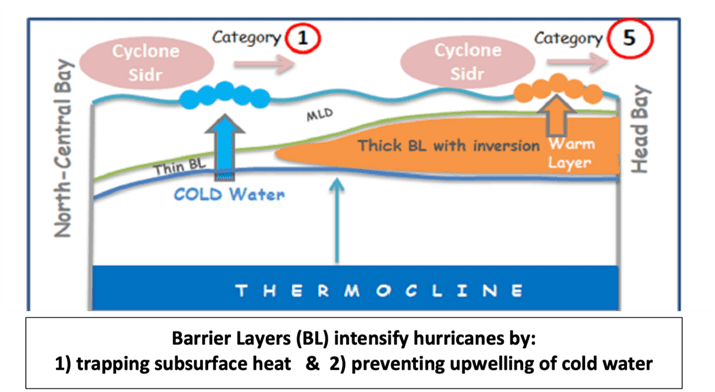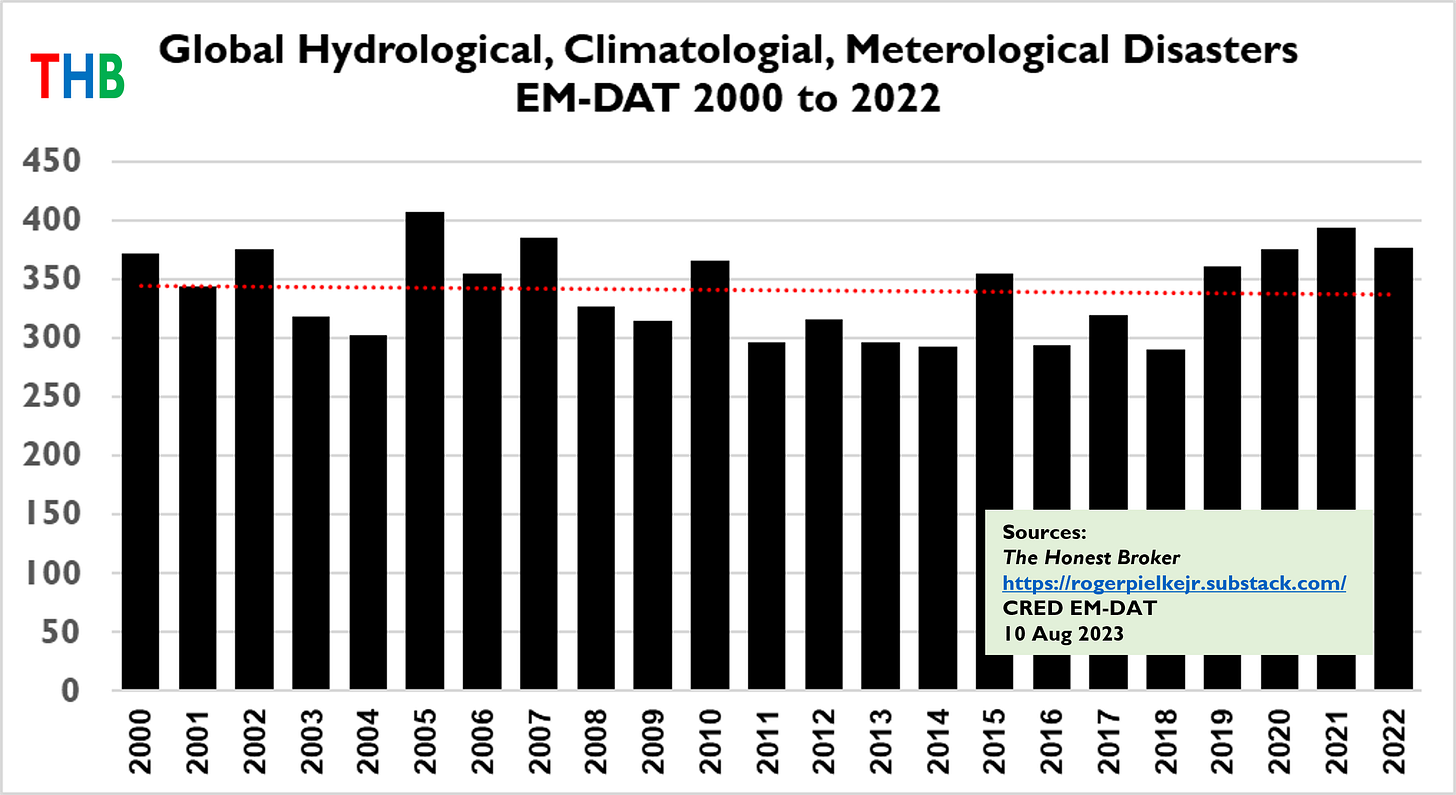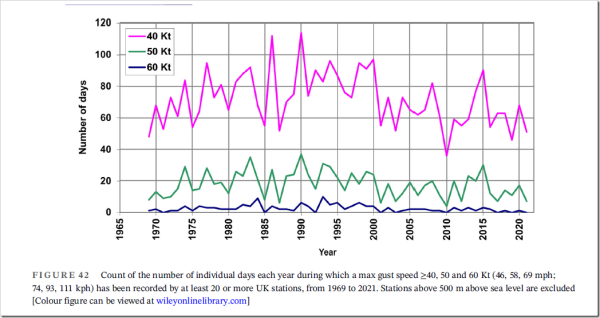by J. Steele, Aug 11, 2023 in CO2Coalition
The Maui fire would have devastated Lahaina in a colder or warmer climate. It would have devastated Lahaina in high or low CO2 concentrations. The key is managing the dead grasses that become flammable in just hours. Climate change was irrelevant. Declaring a climate emergency to reduce fossil fuels is a useless remedy that only misdirects funds that will be needed to better manage a fire-prone landscape.
The massive destruction and loss of life in Lahaina, Hawaii due to the recent wildfire has evoked tremendous compassion and concern from around the world for the people of Lahaina. I can’t comprehend the intense pain now being felt by the people who have lost loved ones, lost homes, and lost all their belongings. So how can such a tragedy be prevented from ever happening again?
First, according to meteorologist Cliff Mass, Hawaii is one of the most fire-prone states in the U.S. (see Figure 1 for some historical fires).
Lightning is rare on Maui. Fewer than thirty thunderstorms rattle across the Hawaiian Islands each year, and most occur during January and February. Accordingly, there have been no reports of an August lightning strike, so it seems doubtful this tragic fire was started naturally.
According to Hawaii Wildfire Management Organization, 98% of all Hawaiian fires are started by people, of which 75% are due to carelessness. Thus, a Smokey-the-Bear type campaign that “only you can prevent forest fires” would help raise people’s consciousness, especially newcomers. As retirees flock to Hawaii seeking the health benefits of a warmer climate, the population has tripled since 1980, which only increases the probability of a careless fire being started.
If started by an electrical spark, efforts to secure a vulnerable electrical grid is required. Sadly, the remaining fires have been suspiciously ignited by arsonists, and arson is nearly impossible to prevent.
However, there are other precautions that Hawaiians can take to prevent the rapid spread of fire that caught so many people in Lahaina by surprise. Dr. Clay Trauernicht, a professor of natural resources and environmental management at the University of Hawaii, notes wildfires have quadrupled in Hawaii in recent decades. We agree with his assessment that unmanaged, nonnative grasslands that have flourished in Hawaii after decades of declining agriculture have provided the fuel for more rapidly spreading and extensive wildfires.
As Maui’s pineapple and sugar cane plantations were abandoned, they became dominated by invasive annual grasses that flourish in disturbed soils. Fire experts categorize such small diameter grasses as 1-hour lag fuels, meaning that within half a day of dry weather, these grasses become highly flammable, allowing fires to rapidly spread in even moderate winds. Annual grasses typically die during the dry seasons. Maui’s rainless period typically lasts from about May 25 to July 15.
Furthermore, Lahaina is situated on the leeward side of Maui’s mountains. These highlands wring out the moisture carried by the trade winds, with only 15” of rain falling in Lahaina compared to 300” on the mountains to the east. Thus, Lahaina’s surrounding grassland vegetation is primed each summer to rapidly burn once ignited.
…
See also: Of the Many Factors Behind the Maui Wildfires, Climate Change Was Not One, Experts Say
and The Origin of the Hawaii Fires/Preventing a Similar Tragedy in the Future
and Hawaii wildfires: how did the deadly Maui fire start and what caused it?




